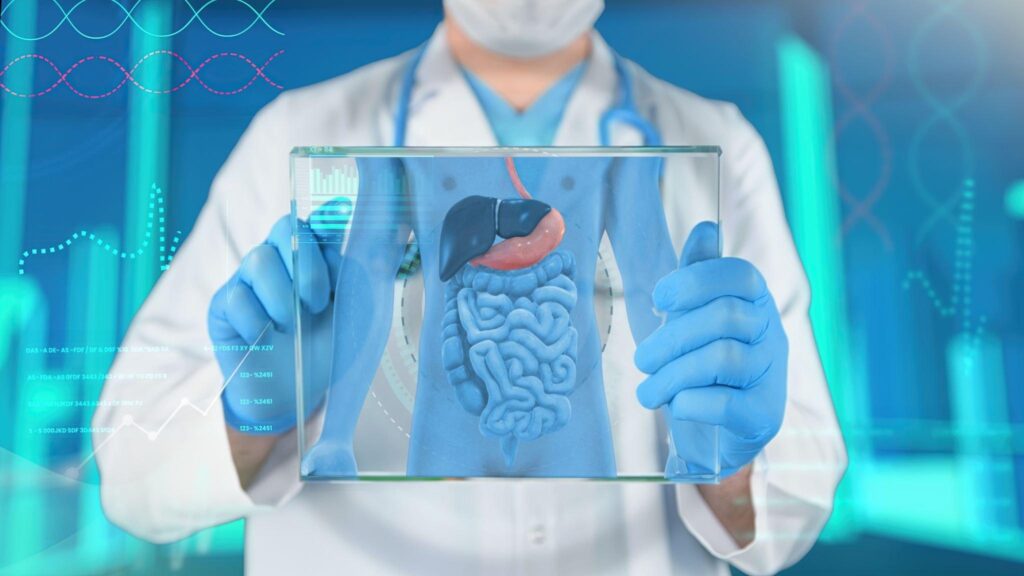Sexual Problems
How to Avoid Unhappy Stomachs: Foods to Avoid Combining
Have you ever eaten a meal and immediately felt uncomfortable, bloated, or experienced other digestive issues? This may be due to improper food combinations. The food we eat has a significant impact on our digestive system, and certain combinations can lead to discomfort and reduced nutrient absorption. In this article, we will explore the science behind meal combinations and digestion, the impact of incorrect food combinations, and provide tips and examples for optimal meal planning. By understanding the basics of food combining, you can make better food choices and avoid unhappy stomachs.
Understanding Food Combinations

- What are food combinations?
Food combination refers to the pairing of different foods together in a single meal. Certain food combinations work efficiently to support good digestion,while others may cause discomfort or even digestive distress.
- Why are food combinations important?
Food combinations are essential because they determine the efficiency of our digestion. The body requires proper nutrition for optimal health, and combining the right foods together can help the body absorb nutrients more effectively.
The Science of Digestion

- How does digestion work?
Digestion starts in the mouth, where food is broken down by enzymes and saliva. The food then travels to the stomach, where digestive juices and enzymes break it down further, and then to the small intestine, where it is absorbed into the bloodstream.
- What role do enzymes play in digestion?
Enzymes break down food into smaller components that the body can easily digest and absorb. Without enzymes, the body cannot break down food effectively, leading to digestive issues such as indigestion or bloating.
The Impact of Incorrect Food Combinations

- What happens when we eat incompatible foods?
When we eat incompatible foods, we force the body to work harder to digest them, leading to digestive issues such as bloating, gas, and discomfort.
- What are the symptoms of poor food combinations?
Symptoms of poor food combinations include bloating, gas, indigestion, heartburn, and stomach discomfort.
Foods to Avoid Combining

What are the most common incompatible food combinations?
There are several incompatible food combinations that can lead to digestive discomfort or interfere with nutrient absorption. These are a few of the most common:
- Fruit and dairy: Consuming fruit with dairy products like milk, yoghurt or cheese can cause fermentation in the stomach, leading to bloating, gas and digestive discomfort.
- Meat and starch: Eating meat and starchy foods like bread, pasta or potatoes together can cause digestive distress, as the enzymes required to digest these foods are different and can interfere with each other.
- Citrus fruits and caffeine: Consuming citrus fruits like oranges or grapefruits with caffeinated beverages like coffee or tea can interfere with the absorption of certain nutrients like iron and calcium.
- Protein and high-sugar foods: Eating protein-rich foods like meat or eggs with high-sugar foods like candy or pastries can cause a rapid rise in blood sugar levels, leading to insulin resistance and other health problems.
- Alcohol and carbonated drinks: Mixing alcohol with carbonated drinks like soda or sparkling water can cause bloating, stomach pain and other digestive issues, as the carbonation can speed up the absorption of alcohol.
It’s important to note that everyone’s digestive system is different and some people may be more sensitive to certain food combinations than others. If you experience discomfort or digestive issues after eating, it may be helpful to keep a food diary and track what you eat and how it affects your body.
Examples of incompatible food groups
Examples include combining meat and potatoes, consuming watermelon with other foods, and pairing milk with citrus fruits such as oranges.
The Benefits of Proper Food Combinations

Have you ever eaten a meal and felt bloated, gassy, or experienced stomach discomfort? It’s possible that your food combinations are to blame. The good news is that you can avoid these unpleasant symptoms by practising proper food combinations.
- What are the benefits?
Proper food combination ensures that your body is able to digest food efficiently, which can lead to a variety of benefits such as improved energy levels, better nutrient absorption, and even weight loss. It can also reduce the likelihood of experiencing digestive issues such as heartburn, acid reflux, and bloating.
- How can proper food combinations improve digestion?
Different types of food require different enzymes to digest, and some enzymes work better in certain pH environments. When you mix foods that require different enzymes, your body has to work harder to break everything down, which can result in digestive discomfort. By following proper food combining guidelines, you can help your body digest food more efficiently and avoid digestive issues.
Tips for Optimal Digestion

In addition to proper food combination, here are some other tips for optimal digestion:
1. Chew your food properly
The first stage in the digestive process is chewing your meal. When you chew your food thoroughly, it’s easier for your body to break down and digest. Aim to chew each bite of food at least 20-25 times before swallowing.
2. Avoid drinking water during meals
Drinking too much water during meals can dilute stomach acid and enzymes, making it harder for your body to digest food. Instead, drink water 30 minutes before or after your meal.
3. Don’t eat too much at once
Overeating can put a strain on your digestive system and result in uncomfortable symptoms such as bloating and indigestion. Aim to eat until you’re about 80% full, and avoid eating large meals late at night.
4. Meal Planning with Food Combining in Mind
To optimize digestion, it’s important to plan meals that are well-combined. Here are some tips for meal planning with food combination in mind:
- How to plan meals for optimal digestion
Start by choosing a protein source (such as chicken or fish), and pair it with non-starchy vegetables (such as broccoli or asparagus). Add a small serving of a starchy vegetable (such as sweet potato) or a whole grain (such as quinoa) if desired. Avoid combining protein with starchy carbohydrates, as this can lead to digestive discomfort.
- Examples of well-combined meals
– Grilled chicken breast with roasted asparagus and a side of quinoa
– Poached salmon with sautéed spinach and sweet potato fries
– Turkey meatballs with tomato sauce and zucchini noodles
By following these tips and guidelines, you can avoid unhappy stomachs and enjoy meals that support optimal digestion and overall health. In conclusion, understanding food combinations and their impact on digestion is key to achieving optimal health and well-being. By being mindful of what we eat and how we combine foods, we can reduce digestive discomfort and improve nutrient absorption. Incorporating proper food combining into your daily diet may take some practice, but the benefits are worth it. So next time you sit down for a meal, consider the combinations of foods on your plate, chew your food slowly, and enjoy the benefits of a happy, healthy digestive system.
FAQ
Is food combining a diet or a lifestyle?
Food combining is not a diet, but a way of combining foods to improve digestion. It can be incorporated into any lifestyle or diet.
Can food combination help with weight loss?
While food combining is not a weight loss plan, it can aid in weight loss by improving digestion and nutrient absorption, which can lead to better overall health.
Are there any foods that can be combined with anything?
There are no hard and fast rules when it comes to food combinations, but some foods are easier to combine than others. Vegetables, for example, can be combined with most other foods without issue.
Is it necessary to follow proper food combinations at every meal?
While it is ideal to practice proper food combination at every meal, occasional slip-ups are not a cause for concern. Listen to your body and make modifications as required to determine what works best for you.

